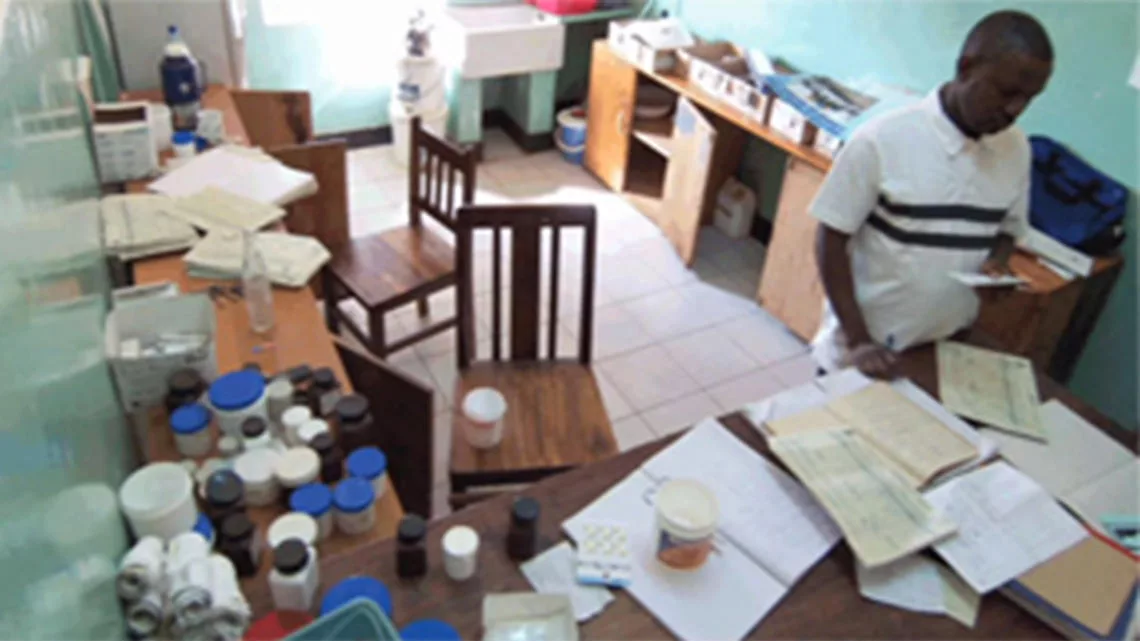SMS for Life
Improving the reliability of malaria prevention and treatment systems
Published: August 26, 2012

Malaria continues to be a significant health problem, especially in sub-Saharan Africa: more than 216 million people are infected per year and about 655,000 die from it, mostly children under five and pregnant women.
Effective medicines to treat the disease exist. For instance, Novartis, a multinational healthcare company, delivers its antimalarial artemisinin-based combination therapy (ACT) Coartem® without profit to the public sector. Since 2001, the company has provided 500 million treatments, impacting more than one million lives.
A key challenge in the fight against malaria is to ensure that medicines reach those who most need them: patients living in remote rural areas with poor access to health services. Stock-outs of medicines at the health facility level are a big and persistent problem in many sub-Saharan countries. Once medicines arrive in the country and enter the supply chain, there is little or no visibility on what happens with them. This makes it extremely difficult to manage the supply chain and to anticipate stock-outs.
Using short messaging service (SMS) and mobile mapping technology, a public private partnership called SMS for Life between Novartis, IBM, Vodafone, the Roll Back Malaria Partnership, and the Ministry of Health and Social Welfare of Tanzania developed and piloted a solution to this problem. This has now been rolled out countrywide in Tanzania to all 5,097 health facilities with support from Medicines for Malaria Venture and the Swiss Agency for Development and Cooperation.
A 21-week pilot study was undertaken during 2009-2010 in three districts, involving 129 health facilities and covering a population of 1.2 million people. It confirmed the effectiveness of the approach in reducing stock-outs for ACTs. Stock data was provided in 95% of cases, and data was very accurate, with an error rate of 7.5%, most of which were corrected. At the start of the pilot project, 25% of all health facilities did not have anyACTsin stock, but by the end, 95% had at least one ACT dosage form in stock. Furthermore, at the end of the pilot, 300,000 more people had access to ACTs than at the beginning of the study.
SMS for Life simplifies the process of monitoring the availability of drugs in remote health centers. Vodafone and Greenmash, a UK-based company, are two technology suppliers that provide systems that use SMS to prompt healthcare staff in rural facilities to check the remaining stock of medicines each week. Health facility workers reply with an SMS to a toll-free number, and are rewarded with free airtime for their responses to weekly stock requests. This information is stored in a central database. The district management team can monitor stock levels remotely and in real-time via the Internet, a smart phone or e-mail and re-distribute existing medicines or schedule new drug deliveries when and where they are needed.
The SMS for Life process, supported by a technology platform from Greenmash, is also now being piloted in Ghana and Kenya, and has expanded beyond malaria medicines, enabling the monitoring of rapid diagnostics tests, bed nets, antibiotics, leprosy and tuberculosis drugs. In addition, the system is being used in Kenya to collect weekly surveillance data on the total number of patients, total tested, total positive and total treated.
Authors of a recent article published in the Malaria Journal commented on the potential power of the Kenya implementation: “It is hoped that in the era of imperfect drug supply the package of interventions, including intense monitoring with high visibility at all levels of care and adequate local responses, may be sufficient to enable Kenya to eliminate stock-outs and achieve 2013 targets of universal and continuous availability.” (Sudoiet al. Malaria Journal 2012)
Video on SMS for Life
Watch this short video on SMS for Life (7 minutes)
WBCSD issue brief on “Information and Communication Technology – An enabler for inclusive business solutions
The above SMS for Life case study is part of an issue brief published in August 2012 by the World Business Council for Sustainable Development (WBCSD). Titled Information and Communication Technology – An enabler for inclusive business solutions, the report looks at the opportunities for ICT to facilitate and scale the private sector’s contribution to development. It displays best practice cases, and highlights opportunities for and barriers to achieving further scale.